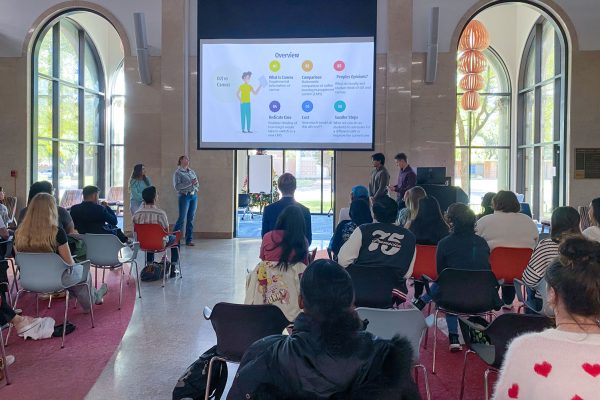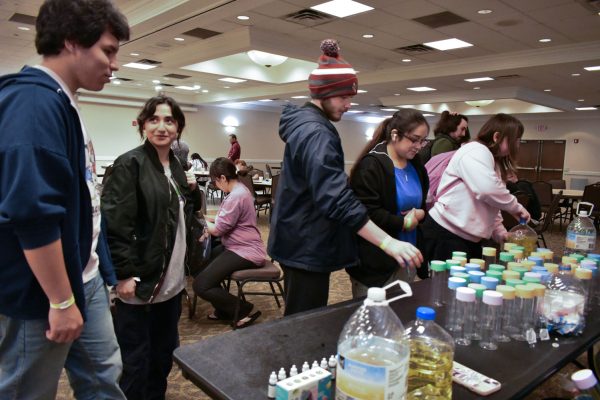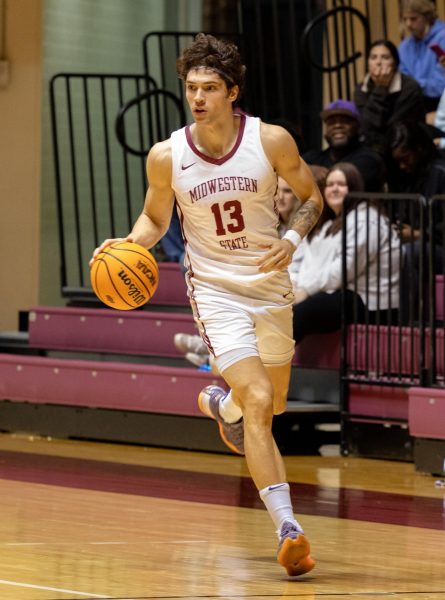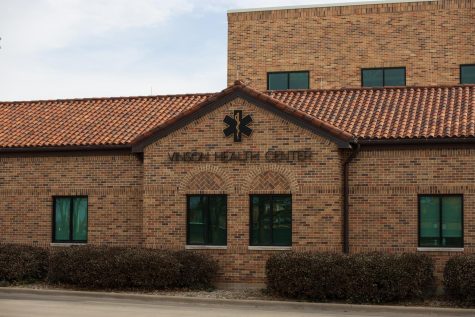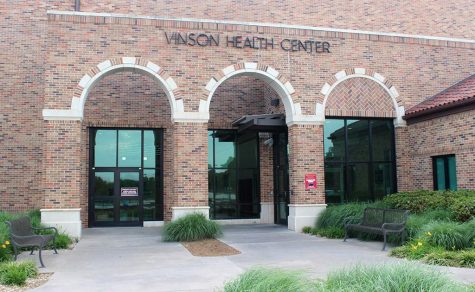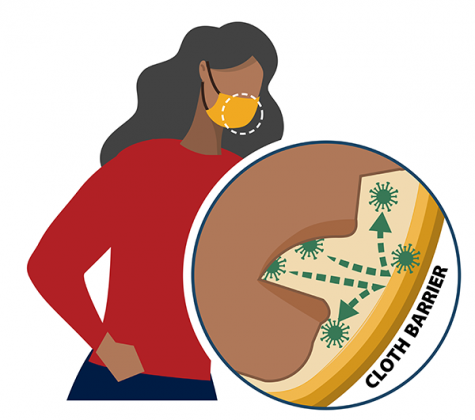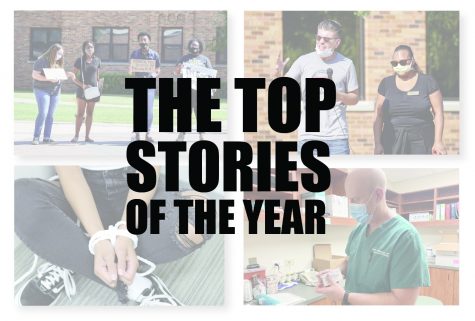University professors share their view on challenging Fall 2020 semester
Students were not the only members of the MSU community affected by the new safety rules put in place to combat COVID-19 in 2020. Faculty and staff not only adhered to the same policies as students but were also in charge of enforcing those policies in their classrooms and adapting to new forms of teaching.
“Faculty did very very well. They were paying attention to the notifications that they would receive on students who were required to be in quarantine or isolation, and they took those very seriously, and they would generally let us know if a student was coming to class and they were required to be in quarantine, or they would just tell the student to go back to quarantine. I think something like this, it takes a community effort, and it takes everyone on the same page if you will. I really think our community was on the same page, and it was a community effort,” Dr. Keith Lamb, vice president of student affairs and enrollment management, said.
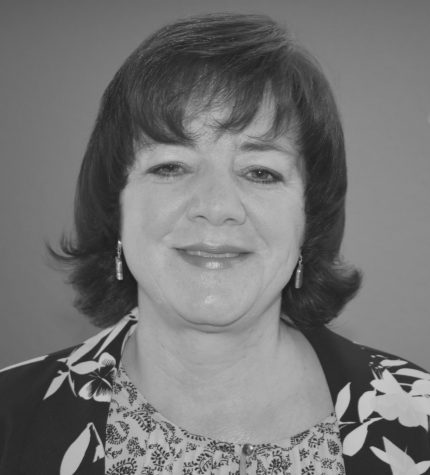
While professors were in charge of reporting students as Lamb said, Dr. Kym Acuna, associate professor of curriculum and learning, felt that students adhered to the protocols well and didn’t require too much enforcing.
“I was very pleased with how well students kept to the protocol. I never had any students cause problems in class. Seeing students outside of class, I was very pleased with the school and students in keeping with the protocol,” Acuna said.
Some students assisted their professors in adapting to the new teaching environment.
“I perceived students to be understanding. I asked students in the classroom if they see the chat to let me know, so I’m not leaving [their] classmates out of discussion. I also told virtual learners, if I’m sharing my screen and you’re not seeing what I’m talking about, to let me know so you don’t get lost,” Acuna said.
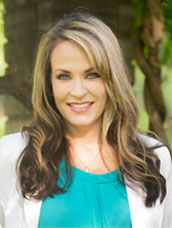
Christina McIntyre, assistant professor of curriculum and learning, took her praise of the students one step further than Acuna.
“Students were very flexible and seemed to be willing to try anything. The attitudes of my students were so positive, and even though 2020 has been tough, I’ve had one of the greatest groups of students I’ve ever had the privilege to teach,” McIntyre said.
A consistent problem facing educators teaching via Zoom across the country is students turning off their cameras, so that professors can’t see them during the lesson. Instructors such as Acuna have had to find ways to encourage student’s to use their cameras.
“Students would want to have their cameras off. For classes that aren’t lectures, it’s important to have cameras on, so that I can guage their understanding throughout the lesson,” Acuna said. “At the beginning of the class, I didn’t pay attention, but as soon as the classwork began I would say, ‘Cameras on we’re getting ready to start.”
Many professors’ teaching styles require a significant amount of cooperative learning and movement within the classroom. This was the case for McIntyre, who had to explore ways to adjust that pedology to the age of COVID-19.
“There were a lot of adjustments but with my style of teaching I had a major one …because students and faculty needed to stay at least six feet apart, cooperative learning activities and activities that required movement in the face to face classes were a huge challenge. There was a lot of trial and error going on. Teaching classroom management was the most difficult, because I’m teaching students how to manage their own classrooms in the future,” McIntyre said.
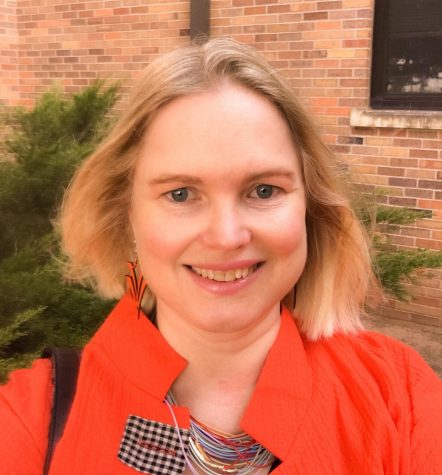
Dr. Kirsten Lodge, associate professor of English and humanities, also had to make adjustments, not just in the way she taught, but in her whole teaching philosophy as well. Unable to guide the conversation online, she found that many of her students would simply talk about whatever it was they wanted to, which lead her to reevaluate her role as a teacher.
“They say when you’re teaching face-to-face you’re the sage on the stage, and when you’re teaching online you’re the guide on the side. I thought that kind of sums it up, because I kind of like to have a point of or two I really want to get across, and want to guide the discussion a little bit and respond to questions. Online we had discussion, but I felt at times I wasn’t able to guide the discussion, and I realized maybe I wasn’t supposed to guide the discussion,” Lodge said.
Lodge faced a number of challenges this semester. A core part of her instruction is “close reading,” a reading technique that Lodge typically has to model to her students for them to understand. The university’s distance learning department told Lodge they didn’t have the same programs other universities such as Harvard University have to accommodate “close reading.” She also had to plan for the lesson in a relatively short timespan.
“I taught everything online, because I have an underlying condition, so I had to submit my medical documentation. I would rather teach in person, because I had never taught online before we suddenly all went home for the spring. It was really hard, I couldn’t get approved until three weeks before classes started. At first, I was just a week ahead of my students, then I was trying to get ahead, so I was working all the time,” Lodge said.
Despite all the challenges, McIntyre felt that the university set the professors up for success.
“This was a very challenging situation and [administration] did a great job. They offered Zoom training for use in our classrooms, which I attended, and the desks and tables were clearly marked. We had the cleaning supplies we needed and a protocol to follow. My dean and chair were supportive and did a lot of work preparing our students and us for the semester,” McIntyre said.
Lodge stressed the importance of emailing professors and communicating with them. She said she emailed students frequently and was often very flexible with them. Lodge said the lack of a physical space made it difficult to create the usual connection she has with her students.
“I tried to get more students to respond to me, [but] not all of them did. Maybe half of people [did respond], so I felt a little bit distant. I wanted to reach out to them and help them and explain more, and sometimes I felt like I couldn’t do that,” Lodge said.
McIntyre saw lots of room for her to grow as an educator and looks forward to an even better semester in 2021 despite the circumstances.
“On a side note … This past year was perhaps not my best teaching year ever, but I learned a lot. It was a humbling experience yet the students were so positive, flexible … just amazing and resilient people. With that said they’ve inspired me and I plan on making 2021 the best year ever,” McIntyre.
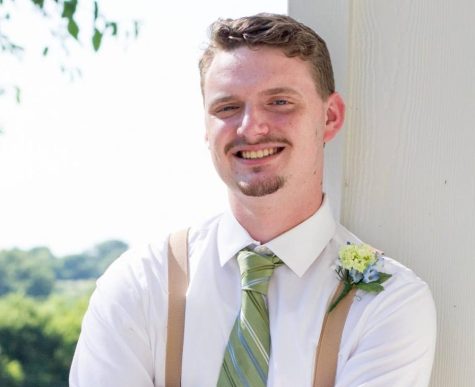
Hi there! My name is Amos Perkins, and I am currently the editor in chief of The Wichitan. I am a 4-8 grade social studies education senior hoping to graduate...



